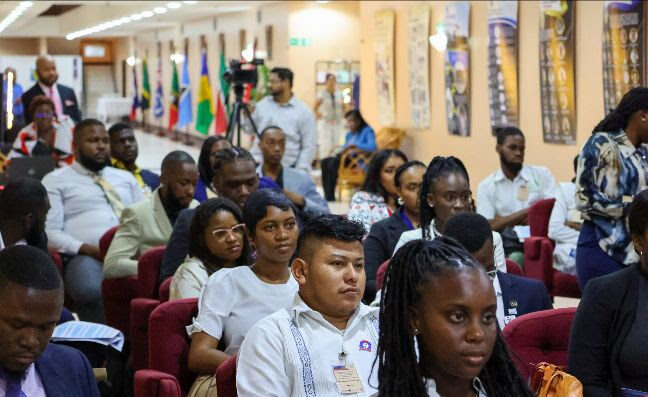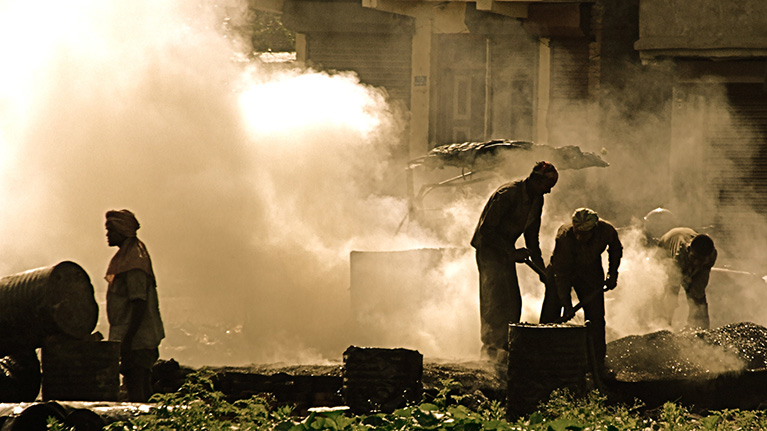This news article is a production distributed through Caribbean News Service. It is made freely available to your media and we encourage publishing and redistribution, giving credit to Caribbean News Service (CNS).
by Dizzanne Billy – CNS Contributor
PORT-OF-SPAIN, Trinidad, Nov 06 2015 – The countdown is on. In less than one month, this year’s Conference of Parties (COP21) to the United Nations Framework Convention on Climate Change (UNFCCC) will kick off in Paris, and experts from developing countries are preparing for the match. As is expected in any game, there is squad formation; countries working toward common goals. The UNFCCC is no different.
One of the things that the Caribbean region has to face each year is the hurricane season, which is becoming more intense as a result of climate change, complicating the whole issue of sea level rise, and quickening the destruction of coastal areas. We are highly dependent on our coasts, which draw tourists and serve as major road networks, locations for productive sectors, and housing areas. The population itself is therefore at risk of displacement. This is disastrous news for the Caribbean and other small island developing states (SIDS).
The Alliance of Small Islands States (AOSIS) is one such squad. Noting that if global temperature goes beyond 1.5 degree celsius, the impact will be extremely harsh on SIDS in particular, AOSIS is putting forward statements supporting a complete abandonment of the 2 degree goal. They’re saying, let us rally around the 1.5 degree maximum as this should provide a fairer chance for survival; survival being the operative word.
One Caribbean country which seems to be ahead of the pack in pushing this goal is St. Lucia. The launch of the regional climate-justice campaign – 1point5 To Stay Alive – in Castries, St. Lucia must be recognised. This campaign seeks to build support from the ground up, keeping the grassroot people in the loop, unlike the lock out experienced by civil society in Bonn climate negotiations. It will see the mobilisation of artistes, poets, climate negotiators, media, and other civil-society actors coming together to increase awareness of the vulnerabilities that Caribbean countries face due to climate change, seeking ways to draw the attention of the global community in attempt to encourage climate action in Paris.
According to Dr. James Fletcher, Minister of Public Service, Sustainable Development, Energy, Science and Technology of St. Lucia, the message behind the campaign is that the Caribbean needs a legally binding global agreement that keeps temperature increases under 1.5 degrees celsius above pre-industrial levels and we need action on this now.
The Caribbean and other SIDS are facing serious issues and climate change exacerbates extreme weather events and implicates lives through the spread of diseases, water shortages, and food insecurity. Due to higher temperatures and decreased rainfall, Trinidad and Tobago is currently dealing with a water shortage which has warranted the implementation of water schedules by the Water and Sewage Authority (WASA). Steve Joseph, WASA’s director of operations has stated that “the dry rainy season has depleted the authority’s average water stock by at least 30 per cent,” and according to WASA’s senior manager of corporate communications, Daniel Plenty, despite the recent rainfall we are nowhere close to the amount needed to restore the drying reserves and we are now operating with a daily 40 million gallons deficit.
This is real and it is impacting our lives more and more each day.
Taking into consideration the final report of the structured expert dialogue (SED) on the 2013-2105 review released by the UNFCCC, which stated that “significant climate impacts are already occurring at the current level of global warming and additional magnitudes of warming will only increase the risk of severe, pervasive, and irreversible impacts,” AOSIS countries are standing together on the opinion that a 1.5 degree goal is needed and support needs to be provided to developing countries to aid in addressing and responding to these negative repercussions.
The Caribbean upholds the 1.5 degree goal. The campaign, a collaborative effort of St Lucia’s Ministry of Sustainable Development, Energy, Science and Technology, Panos Caribbean, the Caribbean Community Climate Change Centre, the Regional Council of Martinique, and the Caribbean Development Bank, has great value. It can play a critical role in providing the Caribbean negotiators with the support they need from the people. Caribbean negotiators have the support for the tough positions that they must defend.
The SIDS squad realises that in order to achieve a low carbon emissions world, we need to be ambitious and strive to build a pathway to below 1.5
(Dizzanne Billy, operates in the role of President of the Caribbean Youth Environment Network(CYEN) in Trinidad and Tobago, where she works in the areas of education and public awareness with regard to environment and development issues. She is a climate tracker with Adopt-A-Negotiator and a young advocate for climate change action.)




